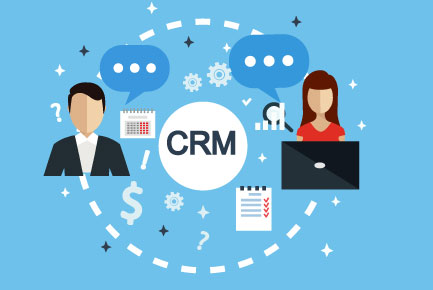
What should a CRM system have?
The beginning of any well-managed commercial organization is its database, since it contains valuable information that can be reflected in great economic benefits if used correctly. We not only need a well-organized database to manage our customers, but also a tool such as a CRM system that facilitates the management of this database and the customer relationships, and, where the commercial activity is reflected.

What every commercial database should contain:
I have come across many companies that do not have correctly stored customer data due to the lack of a system to handle and manage this information. Usually they have the billing data, mostly for collection, but the vast majority does not go beyond that. This is because they do not know about CRM systems or do not have one that meets the necessary requirements to carry this out.
It is not only necessary to have the invoicing data, but also to have the contact data of all the people who can influence the purchasing decision: manager, administration manager, purchasing manager, warehouse, the assemblers if necessary, and the one who can give a positive opinion of our products.
It is not enough to have the customer data, but also of potential customers, whether or not they have requested a quote. We must also have registered referrers, prescribers, and collaborators. In short, we must have all the information of who can buy from me and who can recommend me. This, as well as other data, must be stored in a CRM system.
Regarding the fields that must be included in the client or contact file, it is not enough to only have their data (email of all the people in the organization included) and billing, we must also include the fields of sector, activity, and customer classification (A, B, C) and of course type of contact (customer, potential customer, prescribed, etc). The CRM system will allow us to filter these fields.
Then comes the commercial information that is almost never available, such as: date of last purchase, most purchased products, average purchase. For the commercial plan, it should be possible to assign campaigns to customers in order to measure the effectiveness of the campaigns and facilitate the management of other areas of the commercial organization, such as telesales or commercial visits. These activities should also be reflected in the CRM system.
And finally, a CRM system
is also responsible for monthly sales reports, such as sales by salesperson, sector, product family, campaigns, new customers, average purchase, or visits per salesperson, all the information that your organization needs. There is other fundamental information also, what they call the sales pipeline, which is nothing more than the sales cycle: calls, visits, offers presented, and closings. And to top it off, this information should be up to date and should be easily consulted, without having to export the data to excel to use pivot tables.
The CRM system must have the functionality needed for a good commercial organization. Without having to adapt a lot or parameterize to the company's needs.
And in the end it turns out that with all this investment in technology and business efficiency, the best CRM system is useless if the whole company is not committed to change and to being customer-oriented. To do this, it must foster communication and consistency.

 Por
Por 